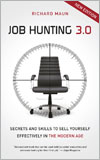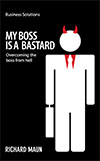better business blog
Tips and stories to add value to you and your organisation

Time Management Tips
I’m often asked to teach time management workshops, which means that a) I need to set a good example and turn up on time and b) I get to reflect on my own time management habits. Reflection is never wasted and this week take a moment to think about how you could tweak your time management skills.
The classic text on effective time management is ‘Getting Things Done’ by David Allen. If you buy one book on the subject, my tip would be to take the time and buy this book. The key change I made after reading it is to write everything down. Even if you have lists of lists, if our tasks appear somewhere on a piece of paper then that significantly increases our chances of completing them. Life does not have to be a memory test – if we take time to write a to-do list we tend to sleep better too.
I’m also a big fan of paper…it requires no batteries, no updates and never suffers from random buffering.
My other favourite time management tips, culled from Transactional Analysis and general experience are:
1. Don’t kid your kid. If you want to get things done make sure your inner child isn’t grumbling and in need of a break, leg stretch or playtime. How many times have you sat in front of your laptop and instead of getting down to work, played a game or whiled away a happy half hour surfing the internet? We all need to let our child have some playtime, or they will tend to sabotage our time management plans. And we can play first and work second, we don’t have to wait until the work is done. Give your kid 5 minutes to play every morning – it will save time later on!
2. Less is more. Having fewer items on our to-do list for today tends to mean that we complete more tasks. We can always pull forward a task from tomorrow if we want to get ahead! When we over-fill our daily task list we tend to waste time picking up files and scanning them ‘to get a feel’ for the work we have to do later. Fewer tasks means carrying less information in our head and we can focus more clearly on the tasks at hand. I’ve found that when I have a smaller list I get more done. A longer list can just be confusing!
3. Quick thinking saves time. Many people begin a task with gusto and feel they are making good use of their time. Maybe the PowerPoint presentation gets underway quickly, or the page of text begins to fill up nicely. The difficulty then comes after the first 15 minutes, when we work past our initial thoughts and stop to think about where to go next. The problem with this approach is that we are already heading in a direction and can’t easily change. However, if we take 5 minutes at the start of the task to sketch our thoughts on a scrap of paper, we can organise our thinking and make sure we have a clearer path to follow. This speeds up the completion of our task and saves time!
Enjoy making good use of your time this week! With all that time saved we can go and play in the sun!
Next week: The secret of successful presentations
e-publishing
Click icon for details


recent posts
browse archive
books
Click cover to view details on Amazon

How to Keep Your Job
Brilliant ways to increase performance, stay employed and keep the money rolling in
Published 2011 Marshall Cavendish
208pp

Job Hunting 3.0
Secrets and skills to sell yourself effectively in the Modern Age
Published 2010 Marshall Cavendish
260pp

 RSS
RSS


